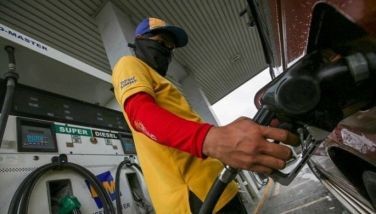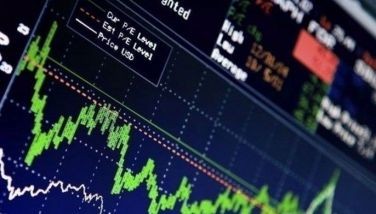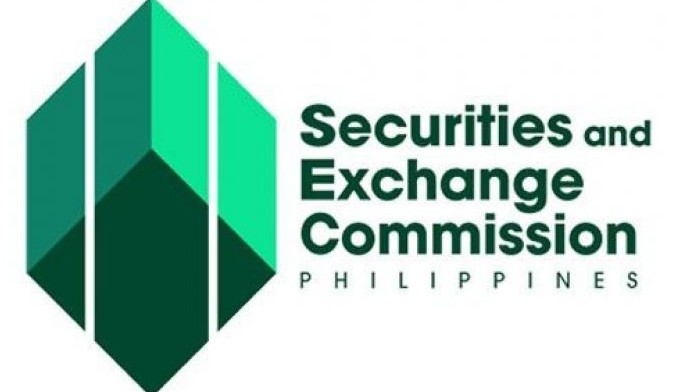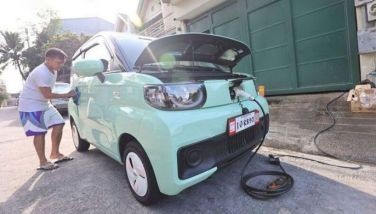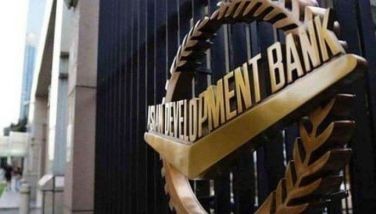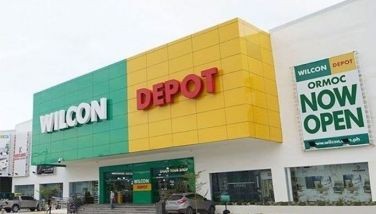Look no further

Just recently, it was reported that the government was able to collect a total of P324.5 billion from import duties and excise taxes on oil products as of mid-November, especially after smuggling was kept at bay by the fuel marking program.
As of Nov. 26, a total of 32.9 billion liters of oil has been injected with a chemical marker to signify payment of proper taxes due. Diesel, gasoline, and kerosene, which are the three most used fuel products in the country, are marked at import terminals, refinery facilities, and retail gas stations, according to one media report.
Government believes the fight against oil smuggling has already been won as evidenced by the billions of pesos in tax revenues generated through the use of fuel marking.
According to the Bureau of Customs, before the fuel marking program was put in place by the TRAIN Law, the government was losing anywhere from P27 billion to P44 billion from smuggling every year.
Presently, 25 oil companies and the country’s lone refinery operated by Petron Corp. are participating in the fuel marking program, with the latter firm having the highest cumulative volume of fuel marked products at 7.8 billion liters.
Looks good on paper.
But was it the fuel marking program that, indeed, helped increase our country’s tax take from oil products?
If we consider the fact that excise taxes have more than doubled, even while the major oil players that comprise the bulk of fuel importers continue to pay the right taxes, then the government might be giving credit where it is not due.
What about reports of fuel being brought in through private ports, where there are no Customs representatives to check if duties are indeed being paid? Or how about those brought in by the single largest import facility in Luzon, which is said to be the biggest source of cheap fuel in Central and Southern Luzon? Or those vessels coming into the country that are unloading products without the need of reporting? Are these imported fuel paying the right taxes if any?
In the case of fuel marking, we learned that there are hardly any tests being conducted and the few done over the past two years are insignificant compared to the number of stations in the country. It is also a waste of time that fuel marking tests are concentrated on the major players whose imports are already taxed upon entry in heavily monitored facilities, while smaller stations that sell cheaper fuels, and are supplied by distributors, are subject to less monitoring.
Albay Rep. Joey Salceda earlier said that “if you want to know why some gasoline stations can offer prices P10 lower than the competition, look no further than fuel smuggling. It’s real and it happens just under our noses.”
Salceda noted that fuel smuggling is easiest in freeport zones, where fuel marking is only conducted at the gates and not upon entry at the freeport, and where enforcement is less strict as freeports are outside the Philippine Customs territory.
He added that customs bonded warehouses are potential sources of smuggling.
The Department of Energy had earlier reported that Petromobil Corp., which was allegedly involved in fuel smuggling, has no certificate of compliance, which may constitute illegal trading.
The BOC recently seized 6,357 liters of unmarked diesel at Petromobil’s service station in Arayat, Pampanga, and ordered the closure of another of its retail station in Angeles City. Other stations in Rizal and Bulacan were also found with deficient fuel market levels of 20 percent and below.
Petromobil is among 10 small gas firms, which according to the Securities and Exchange Commission, have been offering investment programs via franchise, partnership agreements, and co-ownership contracts without authority to solicit investments from the public.
According to one social media post, Petromobil has been offering a co-ownership program, where for an investment of P500,000, one will receive an average income of P200,000 every two months.
Meanwhile, according to cyberbump.com, the minimum capital to join Petromobil’s co-ownership program is P400,000 for a conservative profit of P100,000 within three months and the opportunity to co-own 17 gas stations that the company plans to open. The 17 stations will be managed by Petromobil, and investors will receive 60 percent of the net income on a quarterly basis. The company also allegedly promised to give prospective investors shares of stock via a deed of assignment.
Petromobil also offers prospective investors an oil import co-ownership program with a minimum investment of P500,000. It has, likewise, been inviting the public to become co-owners of a vessel for only P400,000. Screenshots of Petromobil’s social media postings were obtained by the SEC as part of the latter’s investigation and response to a number of investors who recently met with SEC officials to complain.
A criminal case for violation of the Securities Regulation Code, which prohibits the offering and sale of securities without a registration statement filed with the SEC, has been filed against Petromobil’s owner and other officers with the Muntinlupa Regional Trial Court, a copy of which was obtained by this writer.
Celebrating five years in the Phl
Okada Manila recently celebrated its 5th anniversary and the Christmas season with a series of events from Nov. 23 to 26, with Thanksgiving lunches and a dinner held at the resort’s La Piazza, its signature Italian restaurant, with guests that included medical and food delivery frontliners, food content creators, and media collaborators.
The integrated resort’s five years were marked by stories of real people stepping up and going above and beyond their comfort zones. Okada Manila’s story continues through the steadfast support of its guests and team members who ensure that everything is kept running in world-class condition, and with the support of partners who are always willing to collaborate with Asia’s largest integrated resort.
The guests included health and medical officers from Parañaque City LGU, Philippine General Hospital, Philippine Heart Center, Lung Center of the Philippines, Chinese General Hospital, Manila Doctor’s Hospital, as well as GrabPH representatives.
The Okada Foundation supported frontliners through various COVID-related initiatives. For PGH, Okada Manila provided funding for advanced medical equipment for cancer operations. It was also able to send Filipino doctors to the International University of Health and Welfare in Japan.
To cap off its celebration, Okada Manila unveiled its million-dollar project – one of the world’s best projection mapping installations. Envisioned as a moving art piece, it is the only installation of its kind in the Philippines. In the next few months, it will be filled with experimental content diverging from timeless theatrical showings to modern trends.
Okada Manila’s health and safety measures have garnered recognition here and abroad. Locally, Okada was given the DOT’s safety seal and a Philippine Quill by the International Association of Business Communicators. It also received the Forbes and Sharecare VERIFIED badge and the World Travel Council’s safe travels stamp.
For comments, e-mail at [email protected]
- Latest
- Trending















